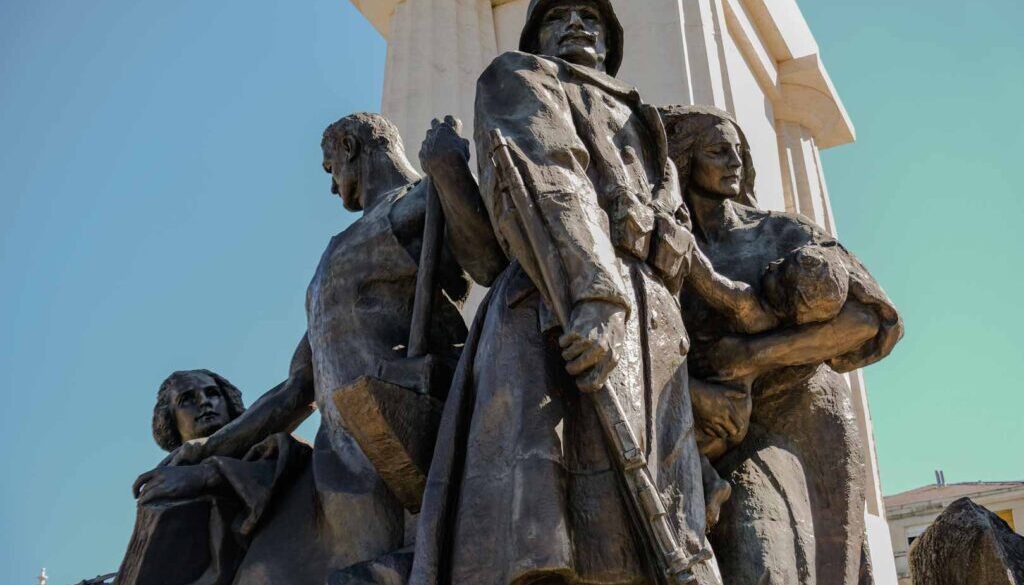Hungary’s Capture From Within: The Will to Power in the Name of Democracy
“What is true is that the idea of power corrupts. Power corrupts most rapidly those who believe in it, and it is they who will want it most. Obviously, our democratic system tends to give power to those who hunger for it and gives every opportunity to those who don’t want power to avoid getting it. Not a very satisfactory arrangement if power corrupts those who believe in it and want it”.
Gregory Batesman
Budapest, Hungary
September 2019
The love of the nation that Matteo Salvini so passionately spoke about in Italy stems in part from the powerful sense of belonging that we all feel when we are part of a group. But when those ideas of collective identity and values are perceived to be under threat, the fear of losing that same sense of safety can produce reactionary and aggressive responses.
In political terms, nowhere has this been more evident than in Hungary, where those responses have walked the fine line between nationalism and fascism. Since his election in 2010, Viktor Orbán has opened up a self-styled ‘illiberal democracy’ in the heart of Europe, rewriting the constitution, demolishing the independence of the judiciary, and even rewriting the history textbooks. What is most striking about Hungary, however, is just how easy it was for such an individual, once in power, to dismantle the system from within.
Gergő Sáling is one of Hungary’s last independent journalists, a man fighting for his livelihood, family and the freedom of his compatriots. Sacked from his press job in 2014 for revealing stories of a minister’s corrupt use of public funds on luxury hotels, he refuses to give up on the ideal of a free press. In his words, ‘we can’t just keep making the shadow of Orbán bigger so that he seems unbeatable. The role of journalism is to wake people up. And I can’t just go back to gardening’. A diverse information ecology is crucial to the health of democracy. But it’s a losing battle, and Gergő knows it. Many of his colleagues have chosen to leave the country. Some of us may take pride in our prized ‘checks and balances’ in our own democracies, but just how safe are they from a demagogue intent on extending his stay in government? The restraints on power built into liberal democracy are all well and good, but as the saying goes – who will watch the watchmen?
The (in)famous philosopher Friedrich Nietzsche identified two types of power, Kraft and Macht. The first he imagined as a sort of brute ‘power over’, while the second he saw as a more enlightened sublimation of the ego to achieve ‘power with’ our environment and each other. But when we operate out of a sense of fear, separation and scarcity – products of the same social, material and political inequality we are witnessing in today’s societies – it’s hard to generate the trust necessary for a mindset of ‘power with’. When driven by fear and insecurity, we often feel it’s far safer to accumulate power over others than risk placing our fate in their hands.
In many ways, Viktor Orbán is merely the natural manifestation of a system built on material inequality, and largely exclusive, antagonistic politics. At a certain point we have to ask who is serving who – is power serving Orbán, or is Orbán serving power? If there is some truth in the latter idea, then we must also ask – just how helpful is it to focus our ire on our politicians and leaders if they are merely dancing to the tune of the darker nature of power itself? Would we not be better served, rather than trying to change the politicians in the system, by instead focusing on changing the politics of the system? Power is a dangerous thing in large quantities, no matter how seemingly virtuous the wielder. As any good stockbroker will tell you, the key is to spread the risk.

Perhaps it’s going too far to call Orbán a fascist, perhaps not, but where does democracy end and fascism begin? It’s hard to tell, and this raises a curious point about the way we normally define democracy as a set piece ensemble of procedures and institutions. In this sense, it isn’t so much a fixed point as it is forever a work in progress, an ideal to strive for, but never truly completed. Perhaps that sounds disheartening, to paint it as a sort of Sisyphean task, but could it also be liberating? It’s still early in the journey, but if nothing else, it gives us hope to see that liberal democracy isn’t where the story ends.
Our travels through the heart of Europe have opened our eyes to how urgently democracy is in need of an update, but also how difficult a challenge that would be to navigate. Spain showed us how close the relationship is between political and economic inequality, while Italy exemplified how, in such an unequal environment, the door is opened for populist rhetoric to capture the abandoned hearts of large swathes of the population. And in Hungary, we saw just how easy it is for such a democratically elected demagogue to rip the system apart from within. In connecting these dots, a dangerous arc of compounding consequences becomes apparent and the way out seems unclear. But if you want to understand the future, they say you should look to the past. It’s time to go deeper, to understand the origins of the social evolution of democracy and the essence of collective decision-making, to begin the search for clues for how to go beyond.
